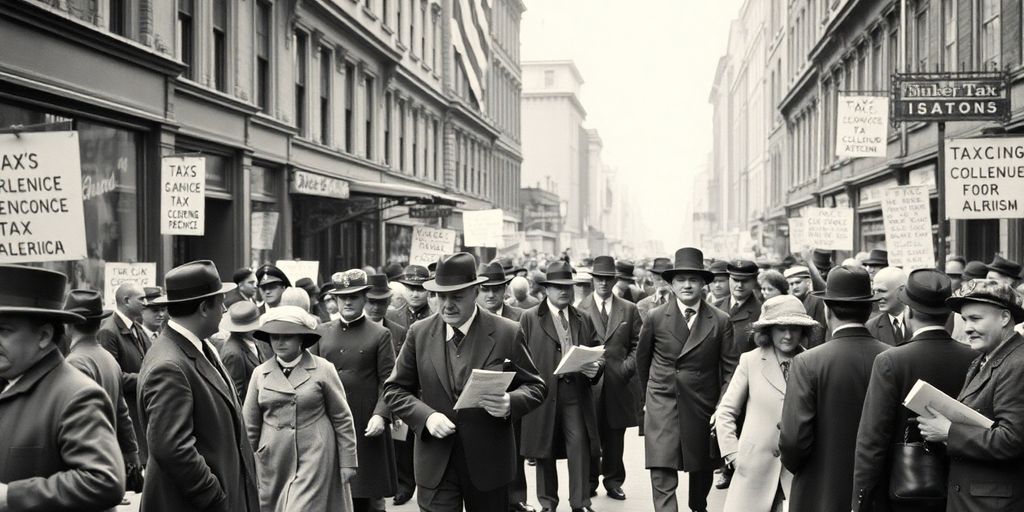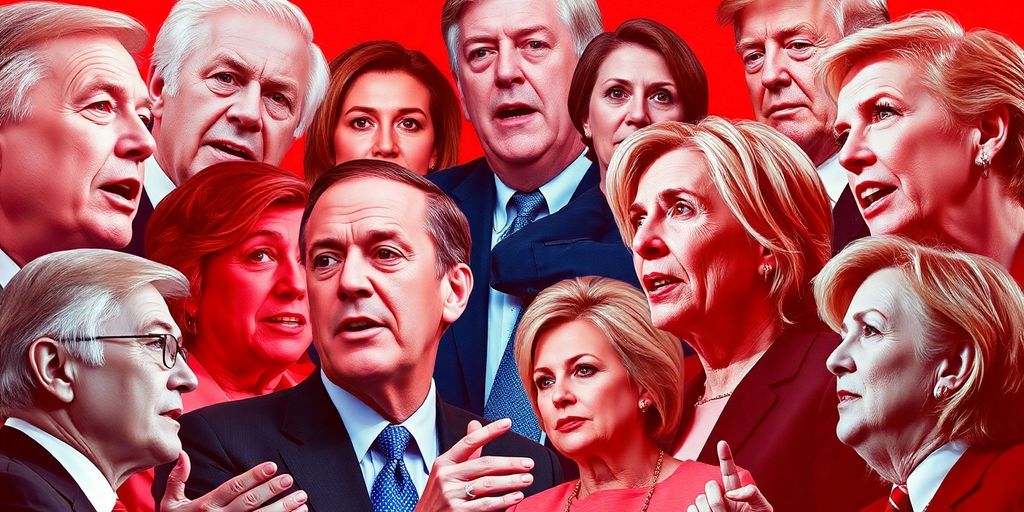Machiavelli – The Art of Power in The Modern World

Niccolò Machiavelli, a political philosopher from Florence, wrote "The Prince," a book that has shaped leaders for centuries. Despite being banned by the Catholic Church for over 200 years, its ideas on gaining and keeping power have influenced politics, business, and religion worldwide. This article explores Machiavelli’s life, his impact on figures like Joseph Stalin, and how his principles still affect modern society, particularly concerning economic policies and the concept of "inflation tax."
The Life of Niccolò Machiavelli
Niccolò Machiavelli was born in Florence in 1469. His family, though not rich or poor, valued education. He studied "Studia Humanitatis," which included Latin, Grammar, Rhetoric, Poetry, Ancient History, and Moral Philosophy. These subjects were thought to prepare people for public life, as Cicero once said they "nurture the values we principally need in order to serve our country well."
At the time, Italy was not a single country but a collection of independent city-states. Florence was ruled by the Medici family, who were known for their banking and support of artists like Michelangelo and Leonardo da Vinci. However, Lorenzo de Medici, who came to power the year Machiavelli was born, was also seen by some as a tyrant.
In 1494, after the French invaded Italy, the Medici family lost control of Florence. The city then established a Republic, and in 1498, at age 29, Machiavelli was elected Secretary of the Second Chancery. He also became Secretary to the Ten of War, a committee handling foreign relations. For 14 years, Machiavelli traveled across Europe, observing how power worked firsthand. He visited important figures like Caterina Sforza, King Louis XII of France, Cesare Borgia, Pope Julius II, and Emperor Maximillian I.
These experiences, combined with his study of Greek and Roman history, gave Machiavelli the ideas for "The Prince." This book was a collection of his observations on statecraft, leadership, and manipulation. It showed the real ways rulers gained and kept power, often going against the Christian ideals of the time.
"The Prince" was not published until 1532, five years after Machiavelli’s death. Some called it the work of "Satan" or a "handbook for tyrants." William Shakespeare even used the term "Machiavel" to describe a cunning person. However, others, like French philosopher Rousseau and English philosopher Francis Bacon, saw it as a valuable description of the world as it truly is. As author Tim Parks put it, "Machiavelli’s little book was a constant threat. It reminded people that power is always up for grabs, always a question of what can be taken by force or treachery, and always, despite all protests to the contrary, the prime concern of any ruler."
Machiavelli’s Influence on Joseph Stalin
Joseph Stalin, who ruled the Soviet Union from 1928 to 1953, was a strong believer in Machiavelli’s ideas. He even wrote notes in his own copy of "The Prince." Stalin used terror, force, and propaganda to turn the Soviet Union into a world power and gain the support of his people. He believed that "You must either pamper people or destroy them; harm them just a little and they’ll hit back; harm them seriously and they won’t be able to. So if you’re going to do people harm, do it in such a way that you do not have to fear their vengeance."
Stalin was ruthless in crushing his opponents. He had political rivals shot, citizens who spoke against him hunted down, and millions sent to forced labor camps called Gulags. In 1937, he launched "The Great Terror," a campaign that killed over 1,500 people daily for a year and a half. By the time it ended, no one dared to speak out against him. By his death in 1953, over 26 million people had been killed, imprisoned, or exiled under his rule.
Stalin’s success in controlling such a vast empire came from his mastery of propaganda, a key Machiavellian principle: "So long as he has the people on his side a ruler needn’t worry about conspiracies, but when they are against him and hate him he’ll have to watch everyone’s every move." Stalin built a cult of personality, portraying himself as a hero and a god. Statues were built, cities renamed, and his name added to the national anthem. The state controlled all media, producing endless propaganda that showed him as a common man, a loving father, and a great general.
- Key Takeaways from Stalin’s Rule:
- Ruthless Elimination of Opposition: Stalin used extreme violence and fear to remove anyone who might challenge his power.
- Cult of Personality: He created an image of himself as an infallible leader, using propaganda to gain the love and loyalty of the people.
- Control of Information: By controlling all media and information, he shaped public opinion and prevented dissent.
Stalin’s propaganda was so effective that even after his death, many people genuinely grieved, including some in the Gulags he had sent there. He used Machiavelli’s lessons to manipulate an entire nation into loving him, even as he committed terrible acts against them.
The Great Deception: Modern Politics and Inflation Tax
Machiavelli’s teachings are not just for historical figures; modern politicians also use similar tactics, though often in less obvious ways. Today, politicians prioritize their appearance. Machiavelli argued that rulers should seem virtuous, even if they are not. They should appear "exceptionally compassionate, loyal, humane, honest and devout."
For modern politicians, appearing virtuous often means spending a lot of money on public projects like infrastructure, education, and healthcare. This makes them seem compassionate and increases their chances of re-election. However, this approach often leads to problems. Historically, excessive spending leads to higher taxes, which makes people dislike their leaders.
Machiavelli warned that "generosity is self-defeating; the more you spend, the more you will need to tax, and the more you tax, the more you will be hated." He also said, "Above all, he mustn’t seize other people’s property. A man will sooner forget the death of his father than the loss of his inheritance."
Modern politicians have found a way around this: the Inflation Tax. Most people don’t even realize it’s happening. Have you ever wondered why things used to be so much cheaper? In 1971, a new house cost $25,000, and a movie ticket was $1.50. Today, prices are much higher because the government prints more money. The more money printed, the less each dollar is worth, and prices go up.
This is possible because of fiat money, which is not backed by a physical commodity like gold. Historically, money was often backed by precious metals. For example, under the Gold Standard, a dollar was tied to a certain amount of gold. This limited government spending and kept prices stable. However, some countries that abandoned this system experienced hyperinflation, where their currency became worthless.
- The Weimar Republic Example:
- Before World War I, Germany was a wealthy nation with its currency backed by gold.
- In 1914, Germany abandoned the Gold Standard to fund the war, leading to inflation.
- After the war, the Treaty of Versailles demanded huge reparations, forcing Germany to print vast amounts of money.
- By late 1923, 4.2 billion German marks were needed to buy 1 U.S. dollar, and everyday items became incredibly expensive.
- The currency collapsed, showing the dangers of money not backed by anything.
After World War II, the Bretton Woods system was established, pegging global currencies to the U.S. Dollar, which was in turn pegged to gold. This effectively put the world back on a gold standard. However, by the 1970s, the U.S. began spending beyond its means, funding social programs and the Vietnam War. Foreign nations, seeing the U.S. printing more money than it had gold, started exchanging their dollars for gold. To stop this, Richard Nixon ended the convertibility of the U.S. dollar to gold in 1971, ending the Bretton Woods system and ushering in the age of fiat currency.
Now, governments can print as much money as they want. This allows them to take wealth from their citizens without direct taxes. While the amount in a bank account might stay the same, its purchasing power decreases. For example, a dollar from 1913 is worth only about 4 cents today. Since 1971, the U.S. national debt has grown from $400 billion to $31 trillion, largely due to increased spending without corresponding tax increases.
- Impact of Inflation Tax:
- Reduced Purchasing Power: Prices rise, and the value of money decreases.
- Shrinkflation: Products get smaller while prices stay the same.
- Stagnant Wages: Productivity increases, but compensation remains flat.
- Unaffordable Education and Housing: The cost of college and homes has skyrocketed, making them out of reach for many.
Inflation hurts everyone, but it hits the poor the hardest. The wealthy protect themselves by owning assets like gold, real estate, stocks, and art, which tend to increase in value when more money is printed. The poor, who often hold their wealth in cash, see its value destroyed. Inflation is a destructive force that can ruin societies.
Governments worldwide are using this "inflation tax" to fund their spending. They are focused on short-term gains and re-election, often promising programs that require more money printing. The national debt in many countries is so high that the only way out seems to be printing more money, which will further devalue currencies. The U.S. national debt is projected to exceed $100 trillion by 2050. As Machiavelli warned, a ruler who tries to be too generous will eventually run out of money, be forced to impose taxes, and lose the respect of his people.
As of 2023, global debt has reached a record $300 trillion, or $37,500 for every person on the planet. Thomas Jefferson once said, "Paper money is liable to be abused, has been, is, and forever will be abused, in every country in which it is permitted." This statement still holds true today, as the principles Machiavelli wrote about 500 years ago continue to shape our world.








Responses